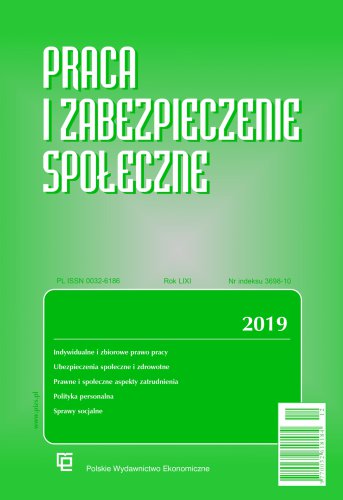Labour and Social Security Journal 12/2021
ISSN: 0032-6186
Pages: 56
Publication date: 2021
Place publication: Warszawa
Binding: paperback
Format: A4
Publication date: 2021
Place publication: Warszawa
Binding: paperback
Format: A4
DOI: 10.33226/0032-6186.2021.12.1
JEL: J24, J83, O33
DOI: 10.33226/0032-6186.2021.12.2
JEL: K31
DOI: 10.33226/0032-6186.2021.12.3
JEL: K31, K41, K49
DOI: 10.33226/0032-6186.2021.12.4
JEL: K31
DOI: 10.33226/0032-6186.2021.12.5
JEL: K39
DOI: 10.33226/0032-6186.2021.12.6
JEL: K31
DOI: 10.33226/0032-6186.2021.12.8
DOI: 10.33226/0032-6186.2021.12.9
| Odbiór osobisty | 0 € |
| Kurier Inpost | 4 € |
| Kurier FedEX | 4 € |
| Inpost Paczkomaty | 4 € |
| Free delivery in Reader's Club | from 47 € |

